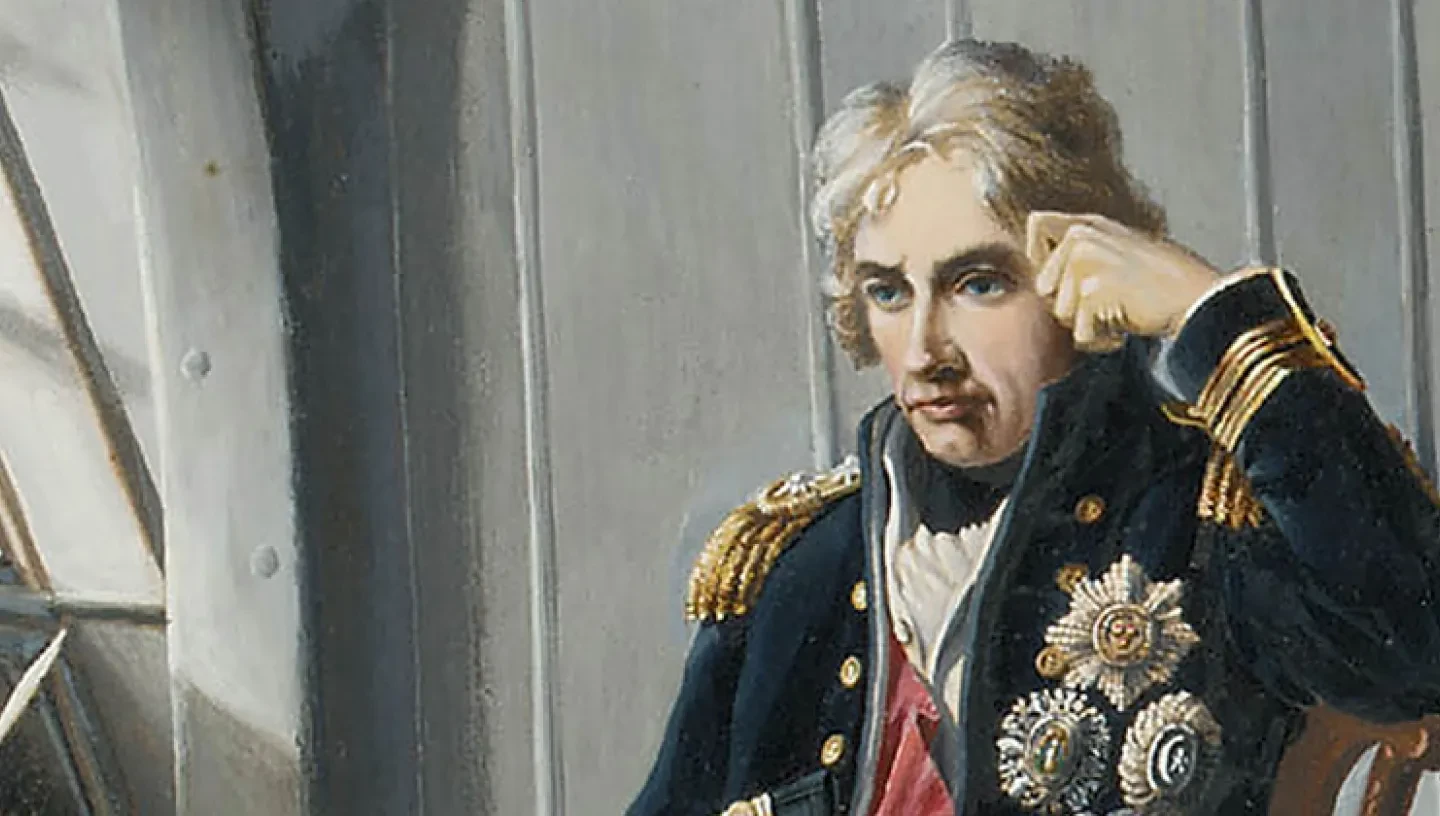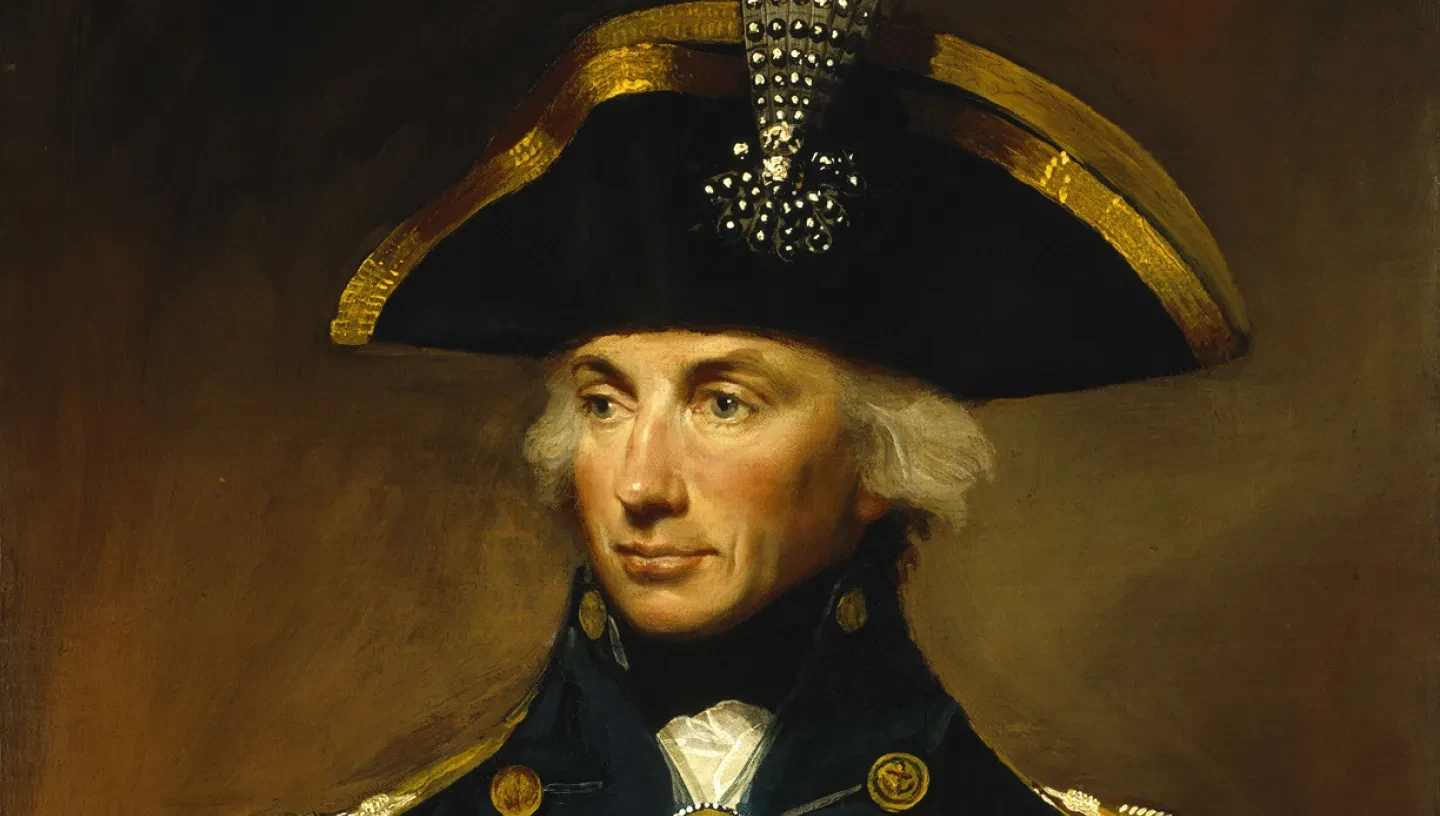
Lord Nelson and his victory at the Battle of Trafalgar left a long and lasting legacy that’s still commemorated today.
Lord Nelson's achievement at Trafalgar in 1805 cannot be underestimated. It meant that Napoleon Bonaparte and his armies could no longer reach beyond continental Europe, either by war or for trade. The Battle of Trafalgar helped lay the foundations for Napoleon's defeat and confirmed British naval dominance for decades to come.
Nelson’s Column
There are monuments to Nelson all over Britain and overseas but there was no outdoor public memorial to him in London until 1843. Nelson's Column, paid for by public subscription, was completed in Trafalgar Square that November. Today it is still one of London’s most famous landmarks.
Trafalgar Day
The Royal Navy celebrates Nelson each year on 21 October as part of its annual Trafalgar Day celebrations. The occasion was celebrated by the general public during the 19th and early 20th centuries with parades, dinners and parties, but declined after the First World War with the introduction of Armistice Day on 11 November.
Toasting the ‘Immortal Memory’
Part of the Trafalgar Day celebrations includes giving a toast to honour the ‘Immortal Memory’ of Nelson. The word ‘immortal’ was often applied to Nelson when he was alive, but it became associated with him after his death. The first known record of the toast was in 1811 when Trafalgar Day was celebrated in The Green Man public house in Blackheath, near Greenwich.
In 1813, Nelson’s mistress Emma Hamilton wrote to her friend Thomas Lewis inviting him to come to dinner on the anniversary of the Battle of the Nile: ‘If you come,’ she promised, ‘we will drink to his Immortal Memory.’
